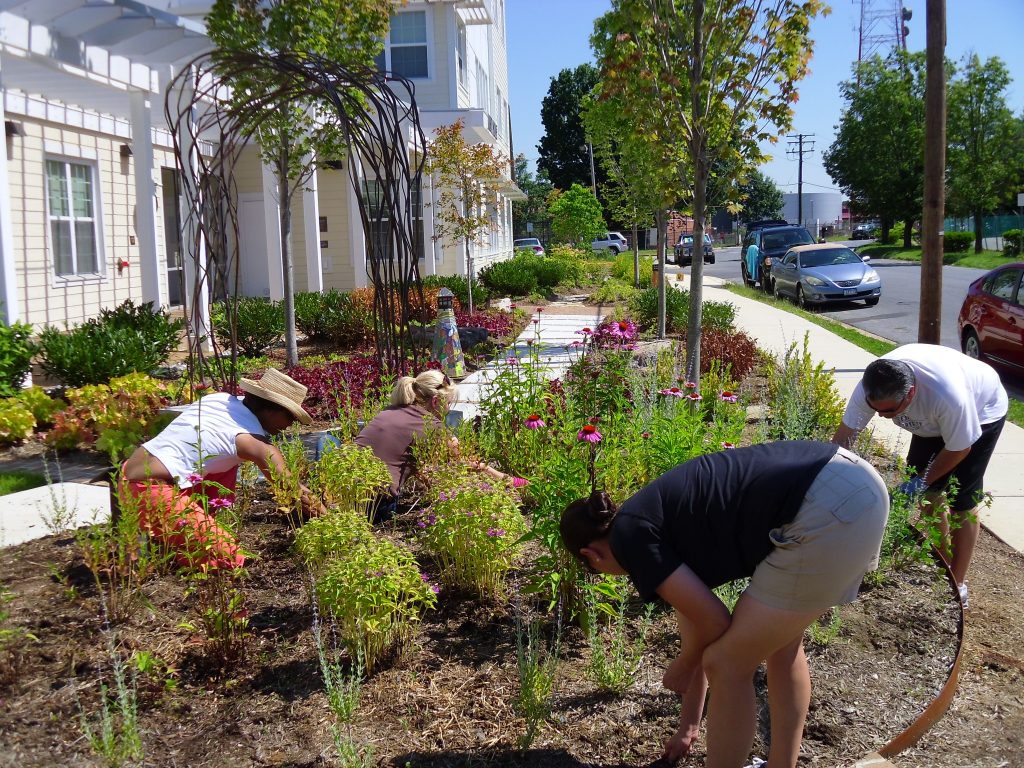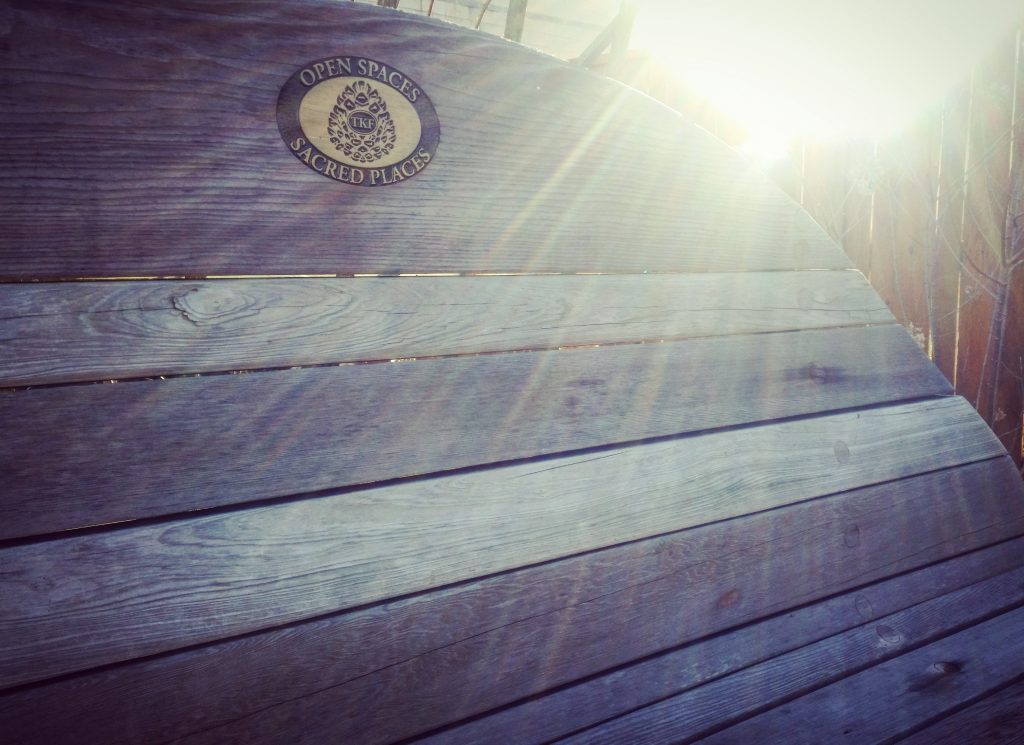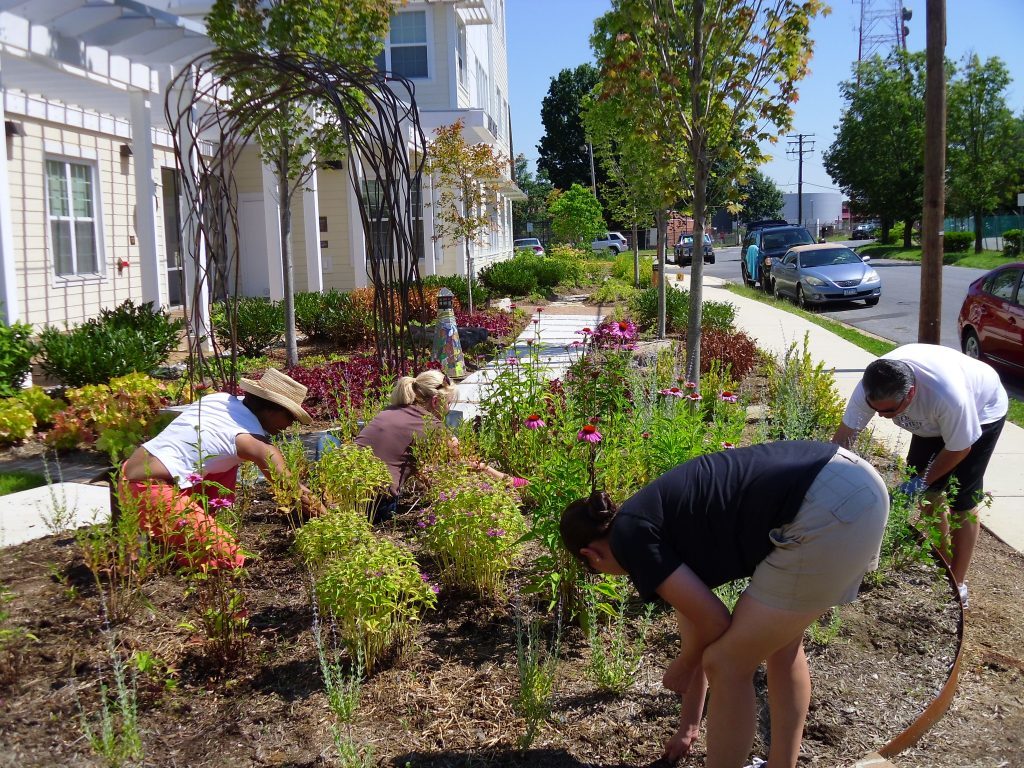Planting a seed engages the mind. Working the soil engages the muscles in our hands. Watching new life grow engages our hope.
Gardening is perhaps one of the oldest and most common ways we interact with nature everyday, and there is increasing awareness among scientists of the potential health benefits derived from gardening activities. A small planter outside the window, a community garden plot, or a private green space all provide possible health benefits.

In the medical community, gardening has a surprising role in health and healing. Horticultural therapy is an emerging practice of engaging patients in gardening activities to improve their physical, psychological, and social health. Although the practice of using plant materials to aid health is quite an established practice, robust science and analysis is needed to develop this field into a mainstream health practice.
A recent study by Soga, Gaston and Yamaura analyzed a large set of research examining the effects of gardening on health. Their study is a meta-analysis of collected data on people’s health outcomes in the context of gardening. In this study, “gardening” is the human activity of taking care of plants and vegetables for non-commercial use in domestic, community, or therapeutic green spaces. Gardens in our backyards or neighborhood are most familiar, but therapeutic garden spaces are commonly where formal horticultural therapy takes place.
Soga and colleagues combed through PubMed and Google Scholar databases using keywords associated with health, gardening, and horticulture. Of 5000+ possible research articles, 21 studies met their criteria:
– Conducted a quantitative survey
– Focused on outdoor gardening
– Included control and treatment groups
– Reported basic statistical standards including sample size, mean, standard deviation and error
The data from these 21 studies was collected, consolidated and compared using statistical analysis. The research team was ultimately able to compare 76 sets of data. Nearly all of these sets reported positive health and well-being effects of gardening, and none reported negative outcomes. The data stood up against several tests for bias and error.
Lead researcher Masashi Soga shares their thoughts on the findings:
“One thing that excites me the most is that our meta-analysis shows a consistent and significant association between gardening and human health, and this positive association was observed for a wide range of health outcomes, such as reductions in depression, stress and BMI, as well as increases in quality of life, sense of community, and cognitive function.
We also propose that policy-makers and health practitioners should view gardening as an important health promotion tool. Indeed, since many gardens require relatively small pieces of land, creating new or expanding existing garden spaces may be relatively straightforward to achieve even in a densely-populated area.”
Soga and colleagues suspect several possible ‘pathways’ through which gardening promotes health. They suggest:
– Direct experience with nature restores attention and reduces fatigue.
– Gardening encourages people to engage in physical exercise, an activity known to be linked with innumerable health benefits.
– Gardens provide opportunities for social engagement and support.
– Gardens provide access to healthy diet sources (fruits and vegetables!).
Of the meta-analysis data that included patients and horticultural therapy users, positive health outcomes from gardening was particularly strong. It is likely these pathways towards health are further enhanced through focused therapy. A horticultural therapist often works one-on-way with a client and a group of health practitioners to create a focused, planned recovery program. For example, a client recovering from a car accident may practice mobility, balance, and coordination when bending or reaching to remove a weed or plant a seed. In some instances, simply sitting in a garden and talking with a counselor is healing.
A TKF Foundation partner, The Light House, is an example of how a garden can take on an unexpected role in health and healing. The Light House, in Annapolis, Maryland, provides emergency shelter and transitional housing for individuals and families who are homeless. It also provides permanent supportive housing for women. They offer counseling and referral services, basic life skills, and wellness and job training programs that help clients reclaim hope and independence in their lives. They do not have a formal horticultural therapy program, but their TKF garden (built in 2010) provides opportunities for healing. Their Director of Programs describe the garden’s role:
“Our staff and volunteers use the healing garden regularly as a calming place to talk to clients. I often see the healing garden used by case managers to sit with a client who is overwhelmed or upset, an employment-training instructor to give advice to a B.E.S.T. Student, or our shelter manager to ask a homeless member of our community if they are OK and how we can help. I also see clients every day, stop and sit in the garden to just take a deep breath and gain strength to keep moving forward.”- The Director of Programs at Light House

Another TKF Foundation partner, Legacy Health’s Emanuel Medical Center in Portland, is a leader in horticultural therapy programming in the United States. Legacy Health offers 12 therapeutic gardens to patients, staff and family across their Portland campuses, trains new leaders in horticultural therapy, and develops curriculum and research to advance the field. Read more about the program in a recent blog post.
Whether you are a hospital patient, someone seeking counseling, or simply exploring your backyard, daily contact with nature has a long lasting and deep impact on your health. Each moment spent in nature adds up in the form of preventative medicine. A moment to pause, to breathe deeply, to observe the vibrant world around you is a daily necessity.

